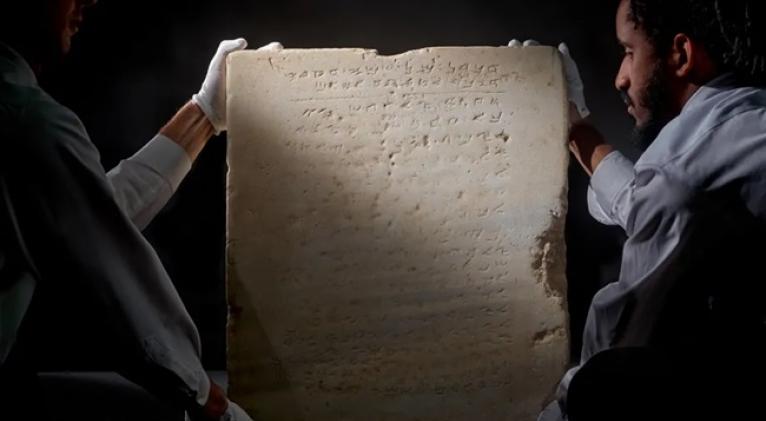
USA, 20 Dec. - Sotheby’s house sold yesterday Wednesday for five million dollars the oldest known Ten Commandments tablet, a precious reflection of the beliefs that have shaped Western civilization that, However, it omits one of the principles that according to the book of Exodus God gave to Moses.
This marble tablet weighing 52 kilos and about 60 centimeters high went up for auction today with an estimated price of between 1 and 2 million dollars, but ended up exceeding that range after a brief bidding at Sotheby's headquarters in New York. The buyer, for the moment, is anonymous.
The tablet, written in paleo-Hebrew, contains twenty lines of text engraved in the stone that closely follow the biblical verses, common to both the Christian and Jewish traditions.
Its origins date back to the late Byzantine period (about 1,500 years ago), although it was not discovered until 1913, during excavations to build a railway along the southern coast of what is now Israel.
No one seemed to appreciate the value of the tablet at the time, since for thirty years it served as a paving stone at the entrance of a local house, with the inscription facing upwards and exposed to pedestrian traffic, which has worn down its writings considerably (although they are still legible).
The tablet traveled from hand to hand until it reached an Israeli antique dealer in 1995; later, it became part of the Museum of the Living Torah in Brooklyn (New York) and was finally bought in 2016 by the collector Mitchel S. Cappell, who at the time paid $850,000 and managed to sell it this Wednesday for a much higher price.
A tablet that defines “Western civilization” but omits a key commandment Richard Austin, global director of Sotheby’s books and manuscripts, stresses that this tablet “is not only a historical artifact of enormous importance, but a tangible link to the beliefs that helped shape Western civilization.”
Therefore, the precious item - “one of the oldest and most enduring moral codes of humanity” - is a journey through millennia that takes the traveler to multiple regions, cultures and creeds.
According to the book of Exodus, God gave Moses the ten commandments on Mount Sinai to seal a “covenant” with the Israeli people, and of all its “eternal principles,” two are related to the believer’s relationship with God.
However, this tablet has a peculiarity, and that is that it omits the commandment “You shall not take the name of God in vain,” replacing it with “You shall pray at Mount Gerizim,” a sacred place of the Samaritans, Sotheby’s indicates on its website.
Despite the value that the house attributes to the tablet, some experts question its authenticity; for example, Brian I. Daniel, director of research and programs at the Penn Cultural Heritage Center in Philadelphia (at the University of Pennsylvania), warned in an interview with The New York Times that objects from the Middle East “are plagued by forgeries.”
Similarly, Christopher A. Rollston, president of the Department of Classical and Middle Eastern Languages ??and Civilizations at George Washington University, indicated to the newspaper that “it is impossible” to know if the tablet is really about 1,500 years old.
In any case, the auction house describes the plaque as "a bridge between faiths, regions and eras," an "extraordinary" treasure of antiquity that, despite its value, will continue to be - for now - in private hands. (Text and Photo: Cubasí)